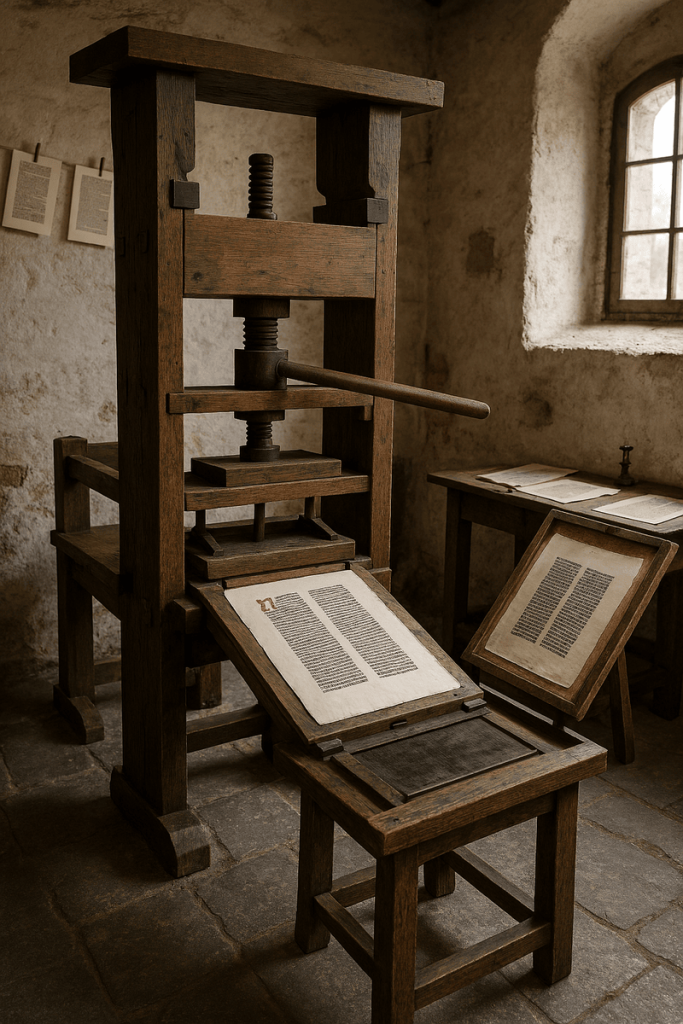
Before the printing press, scientific texts were painstakingly copied out by hand and were consequently expensive, rare, and open to error. Johannes Gutenberg’s invention of movable-type printing around 1440 revolutionized the process. By making the mass production of uniform, cheap books possible, the press disseminated scientific information much more broadly to a greater range of people than had ever been the case before, extending knowledge beyond the exclusive sphere of monastic and elite educated communities. The democratization encouraged the Scientific Revolution.
Increased accuracy and uniformity
Manuscripts hand-copied carried within them the potential for transcription error, which over time could distort scientific drawings, equations, and graphs. With the possibility of exact, identical replicas of written material using the printing press, these errors were removed. With reliable, true replicas of existing information, scientists could count on the authenticity of prior published results to allow them to devote their energies to opening new avenues of investigation rather than verifying old work. This provided a standard platform for scientific communication.
Faster collaboration and examination
As more journals and books were being published, scientists throughout the continent could exchange ideas extensively and quickly. This provided a continent-wide community of intellectuals who could build on top of one another’s discoveries systematically. Sharing of ideas far and wide also made them available for a wider and more critical process of peer review and public examination. This accelerated the pace of innovation and discovery, as groundbreaking books like Copernicus’s De revolutionibus became available to more readers.
A culture of literacy and inquiry
The greater availability of printed books contributed to a rise in literacy levels, creating a more educated, larger population that hungered for knowledge. This generated a culture of curiosity and intellectual enlargement necessary to the Enlightenment. In making accessible a broad spectrum of opinions and challenging prevailing orthodoxy, the printing press fostered a spirit of questioning traditional authority. Intellectual ferment generated in its wake allowed for the emergence of the modern scientific method.